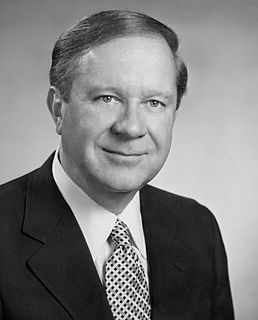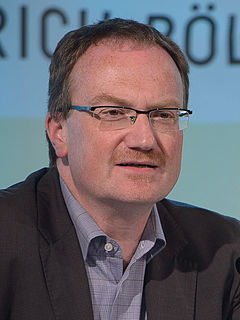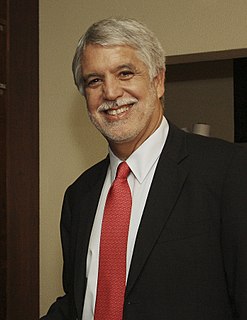A Quote by John D. Rockefeller
Taxation has its limitations as a method of achieving better economic distribution since for this purpose it is essentially remedial. We must also take a positive approach by finding new ways to spread ownership of future capital growth more broadly in our society.
Related Quotes
There are but three political-economic roads from which we can choose... We could take the first course and further exacerbate the already concentrated ownership of productive capital in the American economy. Or we could join the rest of the world by taking the second path, that of nationalization. Or we can take the third road, establishing policies to diffuse capital ownership broadly, so that many individuals, particularly workers, can participate as owners of industrial capital. The choice is ours.
Something is not yet right and ripe in our human society at the beginning of the 21st century and third millennium: missing is an unprecedented vision, boldness and courage to fashion a new, promising, better future. Our beliefs, society, ways of life, institutions and future goals must be reviewed and reappraised fundamentally from scratch.
Many of the deficiencies of our economic system could be alleviated if ways were found to broaden the ownership of the means of production... This has happened in some companies through ESOPs. Successful approaches of this sort would pay dividends in terms of employee commitment and morale. And they would not deprive anyone of his present holdings since they are based on future growth.
Capital, and the question of who owns it and therefore reaps the benefit of its productiveness, is an extremely important issue that is complementary to the issue of full employment... I see these as twin pillars of our economy: Full employment of our labor resources and widespread ownership of our capital resources. Such twin pillars would go a long way in providing a firm underlying support for future economic growth that would be equitably shared.
The purpose of finance is to enable business to acquire the ownership of capital instruments before it has saved the funds to buy and pay for them. The logic used by business in investing is things that will pay for themselves is not today available to the 95% born without capital. Most of us owe instead of own. And the less the economy needs our labor, the less able we are to "save" our way to capital ownership.
Our economic assistance must be carefully targeted, and must make maximum use of the energy and efforts of the private sector... Economic freedom is the world's mightiest engine for abundance and social justice... Developing countries need to be encouraged to experiment with a growing variety of arrangements for profit sharing and expanded capital ownership.
The Department of Peace would take a more human approach to healing our society, looking not merely for ways we can destroy an enemy, but for more powerful ways to create new friends. While the State Department engages in international diplomacy, there is no domestic parallel. There is no department seeking to harness the power of a nonviolent heart.
Our approach to existential risks cannot be one of trial-and-error. There is no opportunity to learn from errors. The reactive approach - see what happens, limit damages, and learn from experience - is unworkable. Rather, we must take a proactive approach. This requires foresight to anticipate new types of threats and a willingness to take decisive preventive action and to bear the costs (moral and economic) of such actions.
The 'Best of British' is a positive thing that's bandied around, but also it's applied pressure to our country in terms of economic growth. I think we've always felt the rest of the world is so much more powerful in terms of being commercially viable, but we can take great pride in our level of creativity.
Broadly speaking, the Southern and Western desert and mountain states will vote for the candidate who endorses an aggressive military, a role for religion in public life, laissez-faire economic policies, private ownership of guns and relaxed conditions for using them, less regulation and taxation, and a valorization of the traditional family.
The real scientific study of the distribution of wealth has, we must confess, scarcely begun. The conventional academic study of the so-called theory of distribution into rent, interest, wages, and profits is only remotely related to the subject. This subject, the causes and cures for the actual distribution of capital and income among real persons, is one of the many now in need of our best efforts as scientific students of society.


































